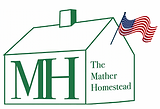Scholars Lecture featuring Thomas Wickman: "Winter's Past and Winter's Future"
Weds., Jan 26, 7 pm, Barn, $25/15 members

As winter weather in the twenty-first century Northeast becomes milder, this lecture asks what we can learn from the more frigid winters of the Little Ice Age (c. 1300-1850). What good came from a stable snowpack or frozen rivers—and for whom? Indigenous communities made preparations to live well in winter, crafting footwear, storing food, telling stories about winters past, and making winter a season of abundance. New England settlers were slow adapt to the new climate, and colonists imposed new kinds of winter suffering on Native people. This lecture suggests that a “vernal bias” in the historiography of early North America has obscured rich and contested winter histories. Studying winter ecology and reckoning with winter events should help people redefine settler colonialism, recognize Indigenous continuance, and imagine possible responses to anthropogenic climate change.
Tom Wickman is the author of Snowshoe Country: An Environmental and Cultural History of Winter in the Early American Northeast. He received his PhD from Harvard University and is associate professor of History and American Studies at Trinity College in Hartford, Connecticut.

